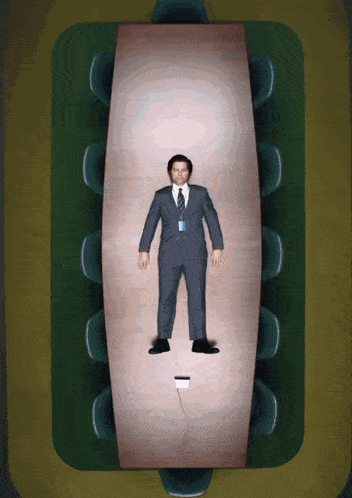In 2019, I was 26 and already a fairly senior team manager when I left my first big girl job to pursue my MBA.
In those early years of office work, a daily power-walked commute in the sweltering heat led to a bustling elevator bank, that led to an algorithmically badge-summoned elevator. As the doors opened on six, I’d high-tail it to my first pit stop at the upgraded office espresso machine.
Hot latte in hand, I’d walk briskly to my first meeting and then convene 7+ more times with various colleagues and clients throughout the day. The endless meetings were punctuated only by frequent coffee machine and bathroom fly-bys; exceedingly rare visits were made to the cafe for a full meal.
Being a manager felt in many ways like being that office espresso machine. People only visited when they needed me, but they visited a lot.
By the end of the day I was zapped, drained, and coffee stained.
In the waning months of my in-office career, I began spending more time working from home, as I helped write my department’s debut mass market book on management science. Home time meant typing time. No distractions. Laser focused attention. Way less caffeine.
The end of a work-from-home day left me tired, but in that warm buzzing muscular way you feel after a good sweaty workout. I was creatively and cognitively fulfilled.
Leaving that job, I knew I’d miss the people and the work, but I would not miss the office. I speculated I’d never return, and I was right, although, at the time I could not have predicted the cause for my remote working future.
Of course, I won’t rehash COVID here. I’ll just say, that pandemic confirmed my spiritual preference and penchant for remote work. I was far from alone in enjoying that one pandemic perk.
These 6 years of working remote have also spanned my transition to motherhood.
Now, as a mom, I experience and appreciate remote work in 4-D. Studies show that corporate working moms cite flexible remote work as a far greater driver of their ability to remain in the workforce (almost 2x) than paid parental leave1. And I can vouch for that.
So, let’s get honest about what that remote work experience looks like:
You’ll feel alone. Despite remote work statistically being more meeting filled, the meetings will feel less connected and more like watching the local news from your living room. You’ll vaguely recognize the people and places you see as daily structures in your life, enough to notice when a coworker’s lamp or piece of art has shifted, but miss basic details, like how tall they are.
You’ll BE alone. There are no midday coffee or lunch dates when you work from home. No eye-contact subtext conversations or whispered office gossip. That all happens in a rolling GIF-laden Slack channel or in your coworkers’ DMs. It’s not a 1:1 tradeoff, but the memes are fun. The real loneliness creeps in when you realize no one is there to bear witness to your daily struggles, cunning skills, and personal wins, like the person next to you in the cuberhood was. You’ll feel the drawbacks of being a lone wolf when it comes time to advocate for yourself and your career.
You’re time will still be stretched. With a time-check permanently affixed to the bottom right corner of your screen, you’d think people would stick to the schedule. But oh-ho its the opposite. It will become easier and more natural than ever to for conversations to spill over a meeting’s pre-defined edges into the cracks in the endless color-coded calendar block. You’ll start to expect your next call to start 5 minutes late. The cues of glossed-over gazes will be missed, as speakers give lengthy monologues while staring directly at their self-view.
You’ll find time to stretch. Contorting your limbs on the floor or an exercise ball might feel like a voyeuristic display of freakdom in an open-concept office, but will feel totally natural in your home. So will a midday walk around the block or a quick jog on the treadmill. Combat that tech-neck with a little cat cow while you can. You’ll also find time to metaphorically stretch - the gaps in your day can be occupied with a load of laundry or a desperately needed shower. This is especially helpful to us postpartum moms still waking up all night with babies.
You’ll eat, drink, and sleep better. For some, it may still be a spoonful of PB for snack, but the odds of scarfing down half a box of free break room donuts at home are substantially lower. With kids, my husband and I trade off the singular commute to daycare, meaning we each bypass one commute per day. Undoubtedly, we wake up later than the other daycare parents with onsite jobs. And the brief moments without kids or work make for critical moments of parental efficiency (think meal prepping, an extra work call, calling the doctor, etc.)
You’ll eat, drink, and sleep worse. Cutting the commute is undoubtedly better for the environment and your rush-hour mental health, but it can also create opportunities to squeeze a meeting into odd hours of day or night. I have taken at least one work call at 3:00 a.m. from my home office. There is no realm in which that’s healthy. I’ve also eaten meals, and more pertinently, pumped breastmilk while on a call with my camera off. The privacy of being able to turn a webcam off while still participating fully in a meeting is a win for pumping moms, but a trade-off in the sense of never getting any damn peace.
You’ll feel guilty, but you shouldn’t. The flexibility that remote work provides does not eliminate the motherly guilt that corporate working moms undoubtedly feel. There’s no clear way to explain to an infant that “mom’s just upstairs working and not totally ignoring you.” Don’t let the creeping feelings of inadequacy win. At the end of the day, remote work will let you juggle the work-life struggle better than being in the office did/would/does. Take the wins for what they can offer.
What did I miss?
—LJ
Thanks for reading! If you have thoughts or suggestions for me to improve the publication, please share them. And if you’d like to support Motherloud, the best ways to do that right now are below:
https://www.peoplemanagement.co.uk/article/1909258/majority-women-say-hybrid-work-boosts-career-progression-study-shows







